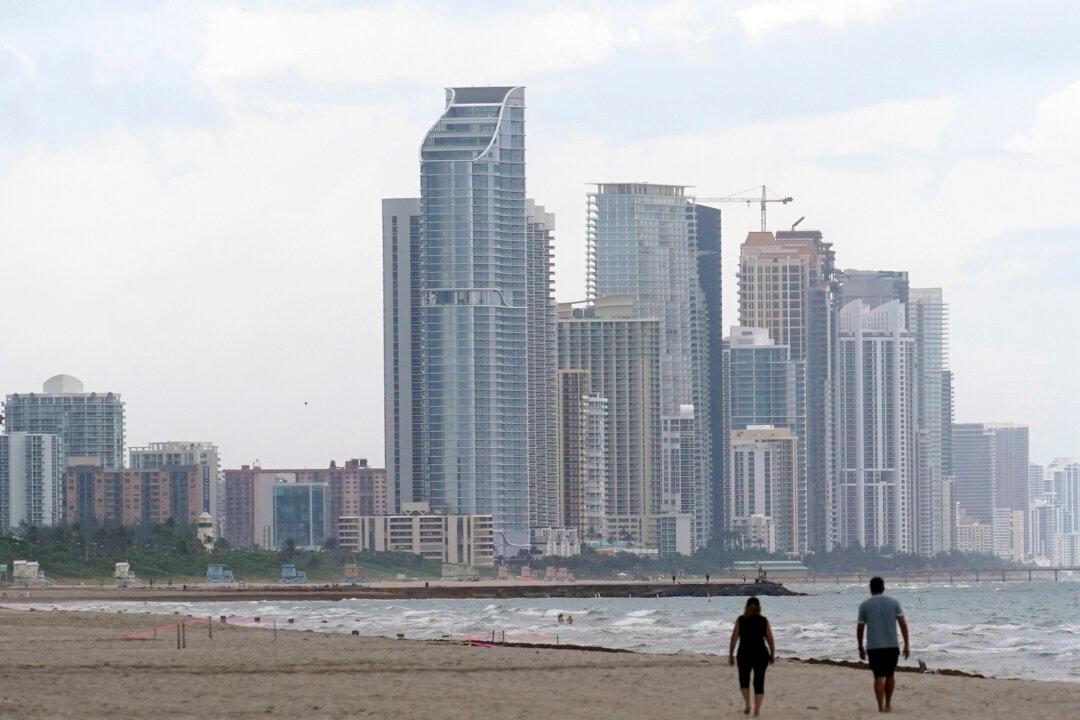BANGKOK—Shares opened higher in Europe on Tuesday after Asian shares followed Wall Street lower as investors awaited fresh U.S. inflation data and the outcome of a meeting of the Federal Reserve.
Benchmarks advanced in Paris, London, and Frankfurt, but fell in Hong Kong, Shanghai, and Tokyo.
The Labor Department’s Producer Price Index for November is due out Tuesday. That shows how inflation is impacting costs for businesses and is important given the Fed meeting on Tuesday and Wednesday. The U.S. central bank could announce plans to accelerate its timetable for reducing bond purchases aimed at keeping long-term interest rates low.
Markets have kept their cool despite warnings that the omicron coronavirus variant is spreading rapidly in Britain and some other regions.
In London, the FTSE 100 gained 0.6 percent to 7,274.71, while Germany’s DAX added 0.4 percent to 15,678.78. In Paris, the CAC 40 climbed 0.5 percent to 6,979.16. U.S. futures also rose, with the contract for the S&P 500 and the Dow industrials up 0.3 percent.
Hong Kong’s benchmark slipped Tuesday on persisting worries over property developers.
Shares in Shanghai-based Shimao Group Holdings sank 20 percent in Hong Kong on concerns about its financial situation. China Evergrande Group’s shares gave up 7 percent. Evergrande is one of China’s largest developers, with over $300 billion in debt.
“Recent scrutiny has gripped hold of Shimao Group Holdings, China’s 13th largest developer by contracted sales, on its liquidity position and debt-servicing ability. That may continue to put the property sector on watch today,” said Yeap Jun Rong of IG.
Another worry is China’s first reported case of the omicron variant of coronavirus, Yeap added.
Hong Kong’s Hang Seng slipped 1.3 percent to 23,635.95 and the Nikkei 225 in Tokyo lost 0.7 percent to 28,432.64. In Seoul, the Kospi fell 0.7 percent to 2,987.95.
The Shanghai Composite index shed 0.6 percent to 3,661.53, while Australia’s S&P/ASX 200 was nearly unchanged at 7,378.40.
On Monday, the S&P 500 fell 0.9 percent to 4,669.97, giving back some of its gains after the benchmark index climbed to an all-time high Friday, ending Wall Street’s best week since February. The Dow Jones Industrial Average also fell 0.9 percent, to 35,650.95. The tech-heavy Nasdaq composite slid 1.4 percent to 15,413.28.
The Russell 2000 also gave up 1.4 percent, to 2,180.50 as small-company stocks fared worse than the broader market in a signal that investors are concerned about economic growth.
The yield on the 10-year Treasury was steady at 1.43 percent after falling to 1.41 percent Monday from 1.49 percent late Friday. That weighed on banks, which rely on higher bond yields to charge more lucrative interest on loans. Capital One fell 2.9 percent.
In other trading, U.S. benchmark crude rose 37 cents to $71.66 per barrel in electronic trading on the New York Mercantile Exchange. It lost 38 cents to $71.29 on Monday.
Brent crude, the basis for international pricing of crude, picked up 42 cents to $74.79 per barrel.
The U.S. dollar rose to 113.68 Japanese yen from 113.57 late Monday. The euro slipped to $1.1281 from $1.1285.





